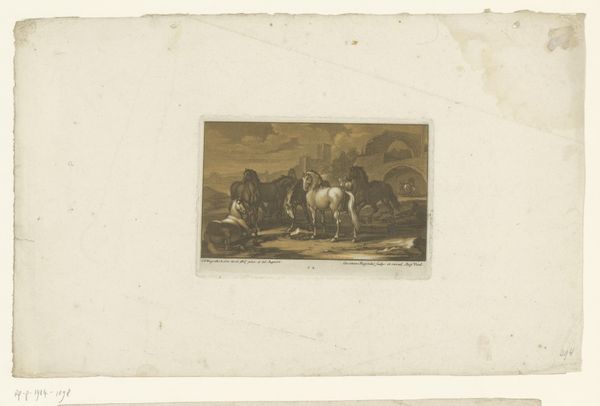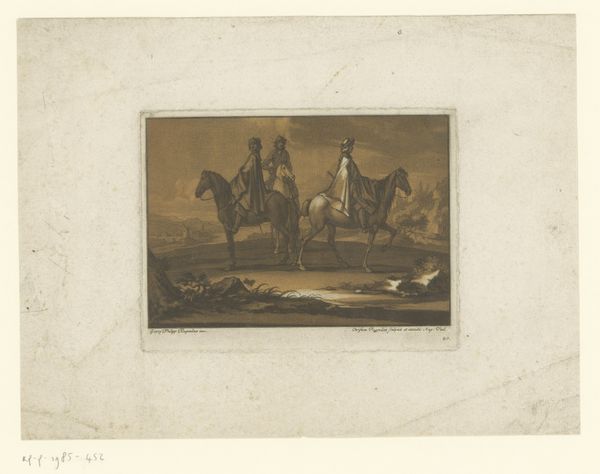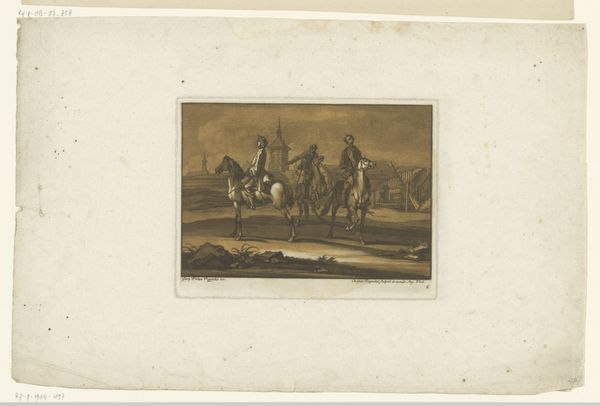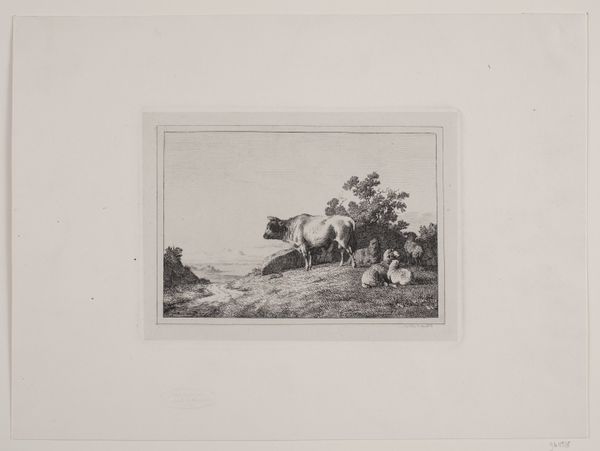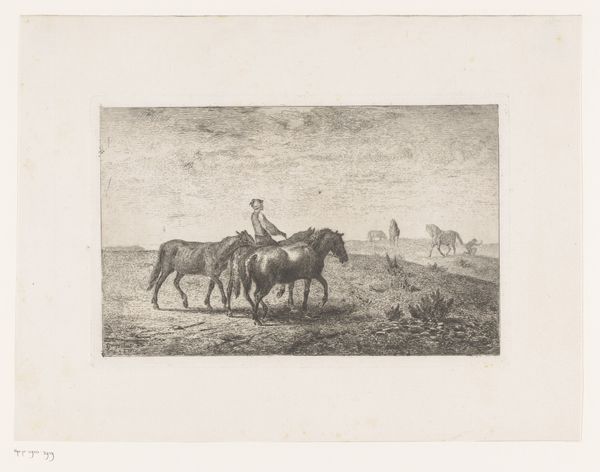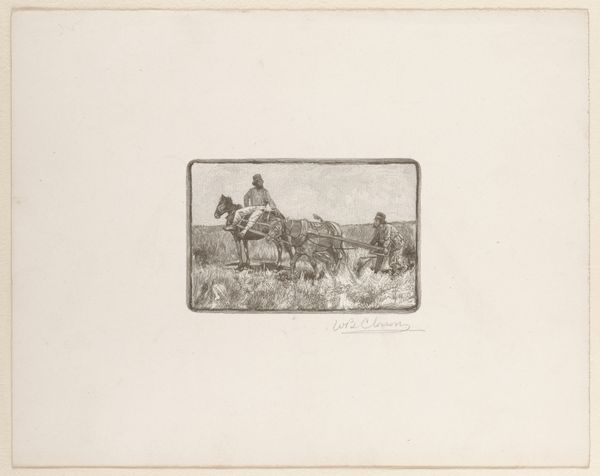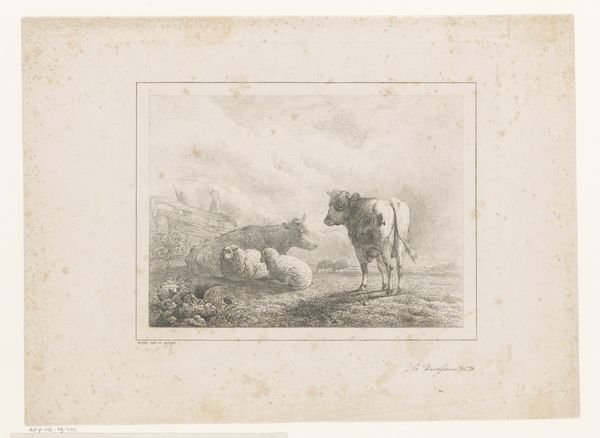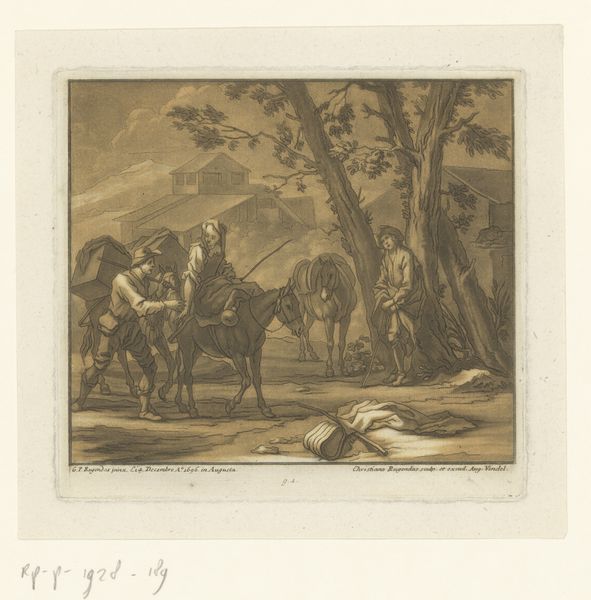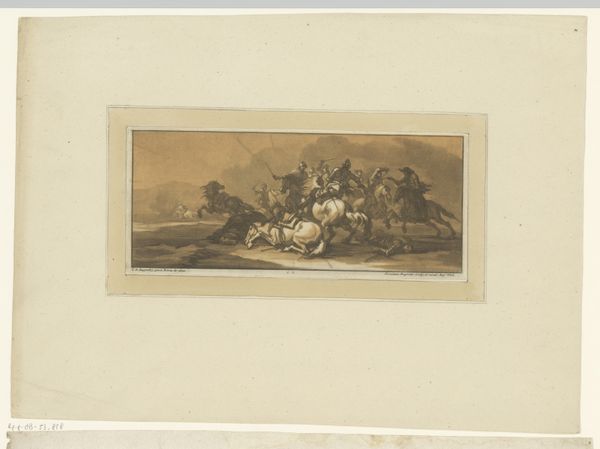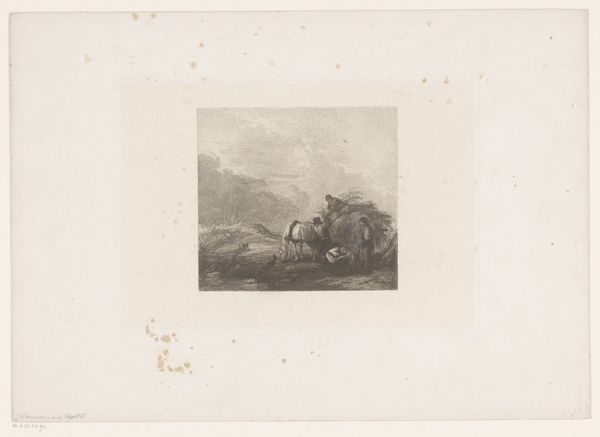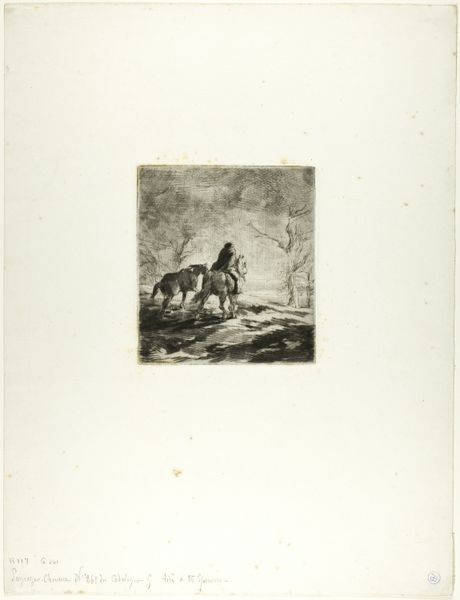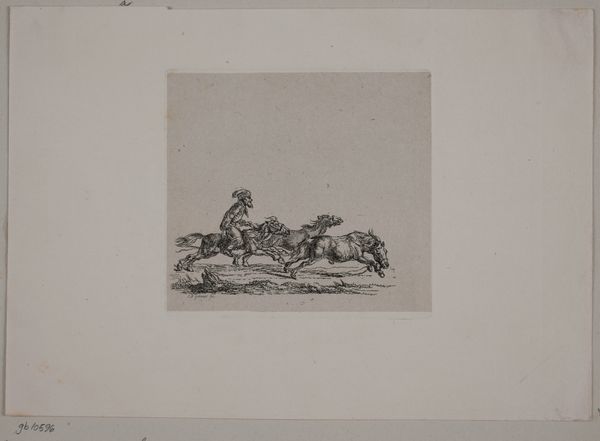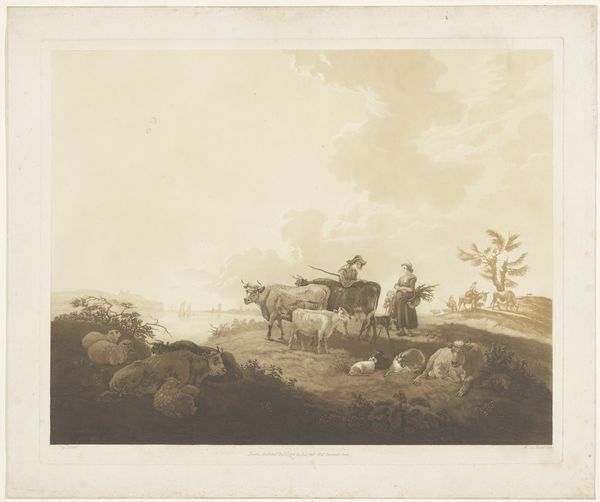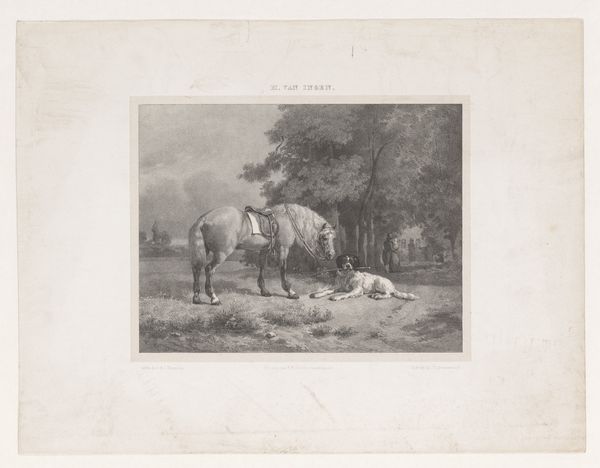
print, mezzotint, engraving
#
narrative-art
#
baroque
# print
#
landscape
#
charcoal drawing
#
mezzotint
#
engraving
Dimensions: 4 13/16 x 7 1/16 in. (12.22 x 17.94 cm) (plate)8 7/8 x 11 15/16 in. (22.54 x 30.32 cm) (sheet)18 1/16 x 14 in. (45.88 x 35.56 cm) (mat)
Copyright: Public Domain
This print, ‘Man on Horse,’ was made in the 1700s by Christian Rugendas using etching and engraving. These processes involve covering a metal plate with a waxy ground, drawing through it to expose the metal, and then bathing the plate in acid. The acid bites into the exposed lines, creating grooves that hold ink. The resulting print translates the artist's vision to paper, but the material and process leave their mark. The incised lines create a unique visual language, different from painting or drawing. Notice how the etched lines define the figures and landscape, giving them form and depth. The sepia ink contributes to the print’s overall tone. Prints like this were relatively affordable at the time. They made images accessible to a broader audience, reflecting the rise of a mercantile class with new appetites for art. The print medium, with its capacity for reproduction, aligns with the era’s burgeoning consumer culture and the changing landscape of art production. It moves away from unique handmade objects, towards a world of dissemination and wider circulation.
Comments
No comments
Be the first to comment and join the conversation on the ultimate creative platform.
